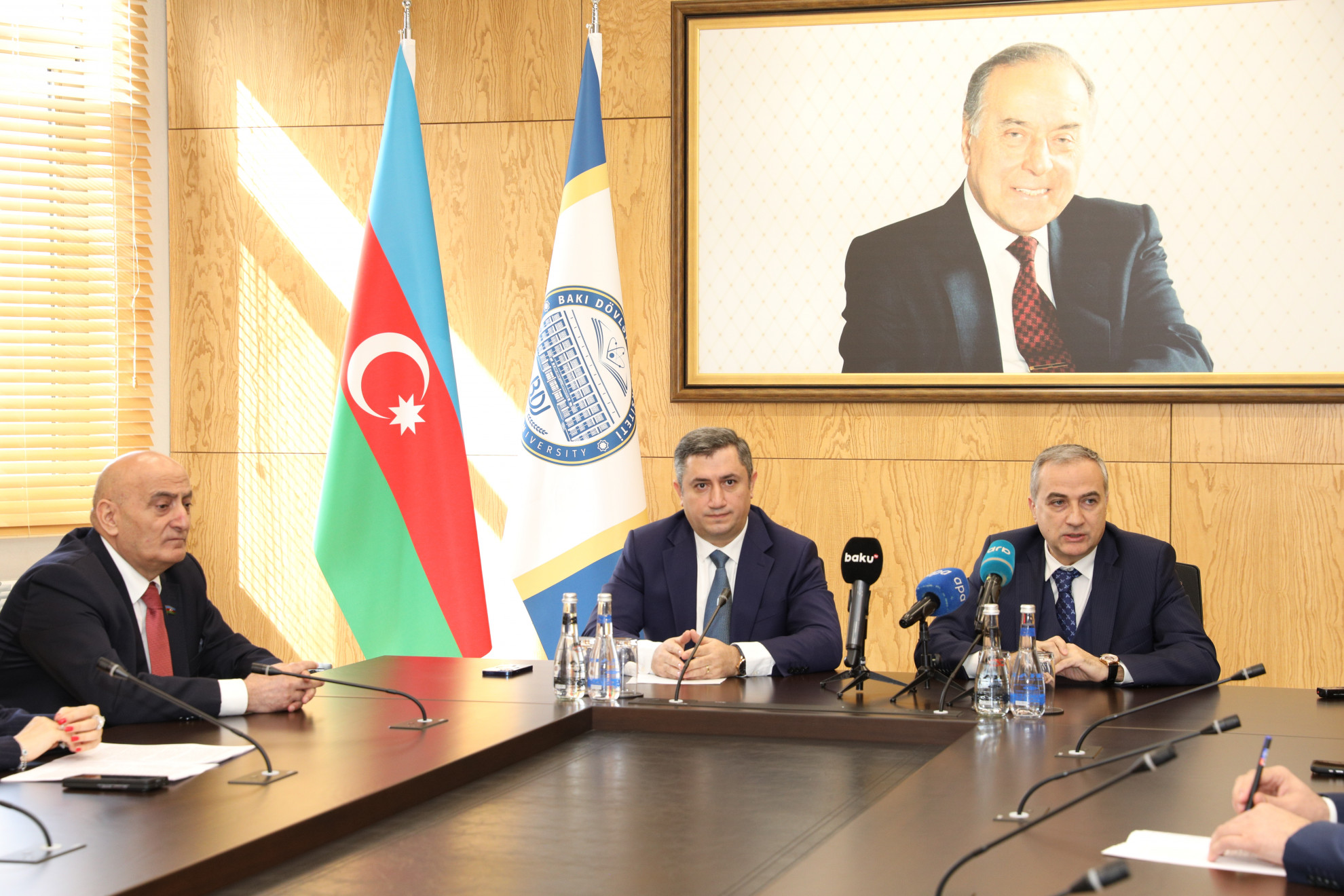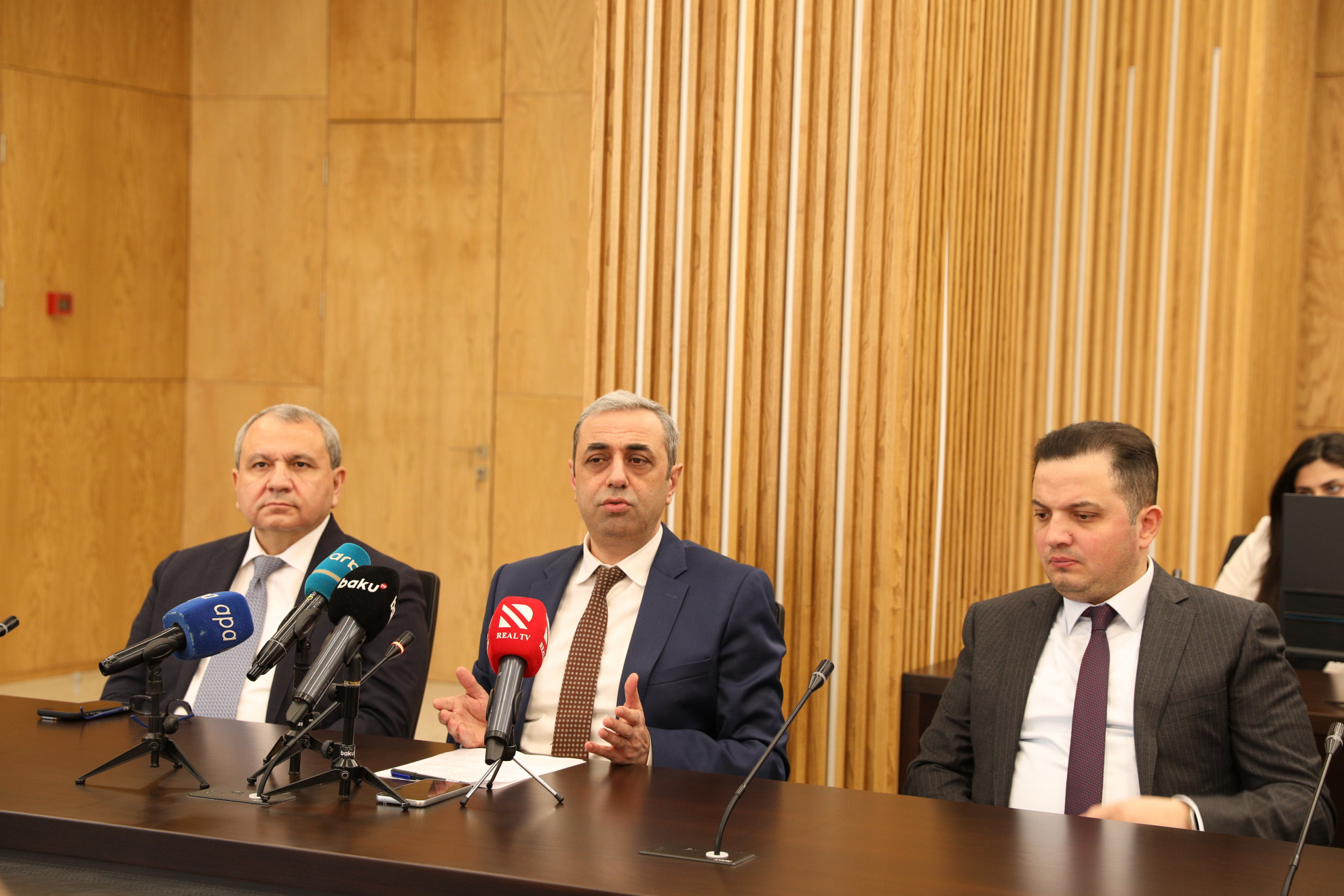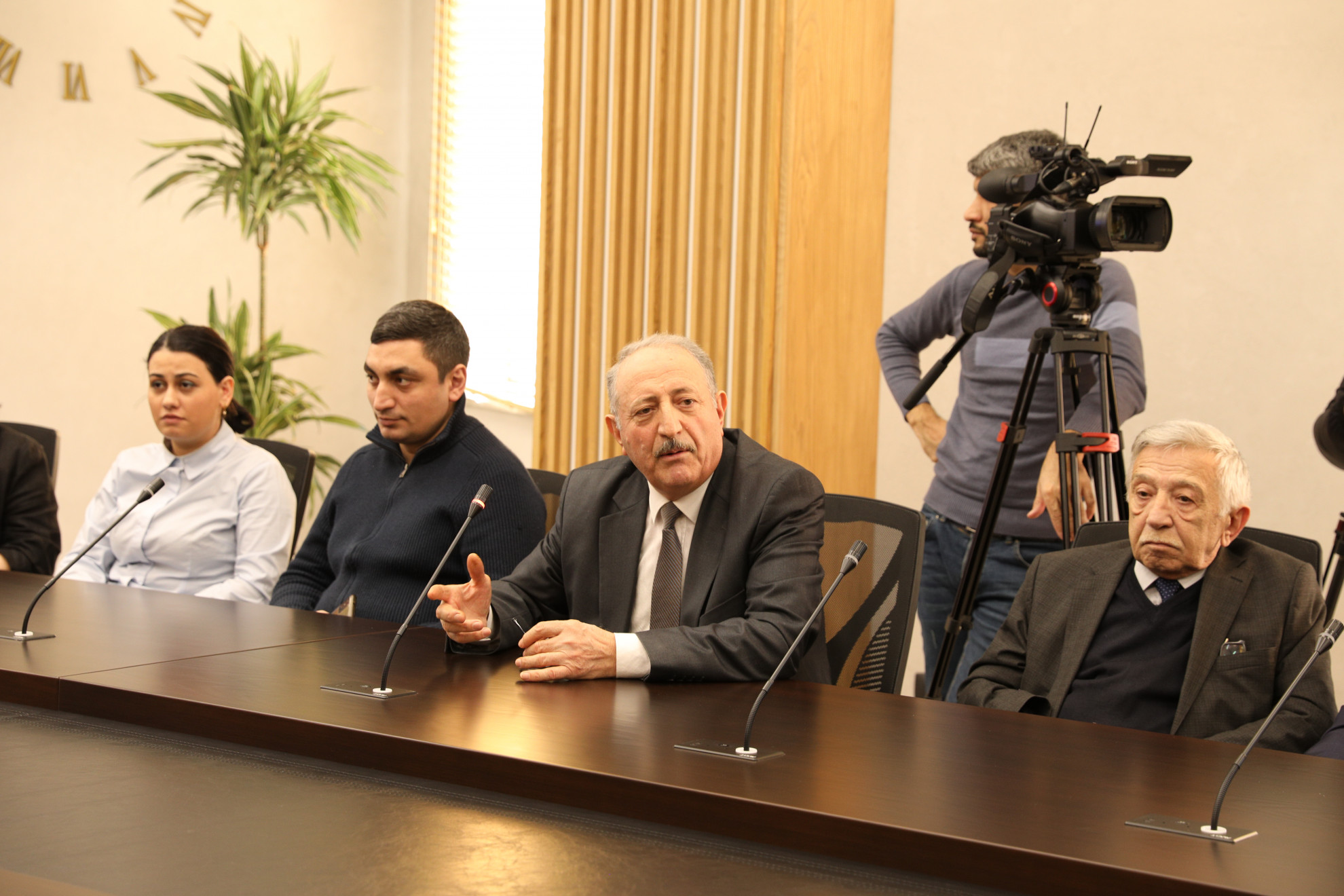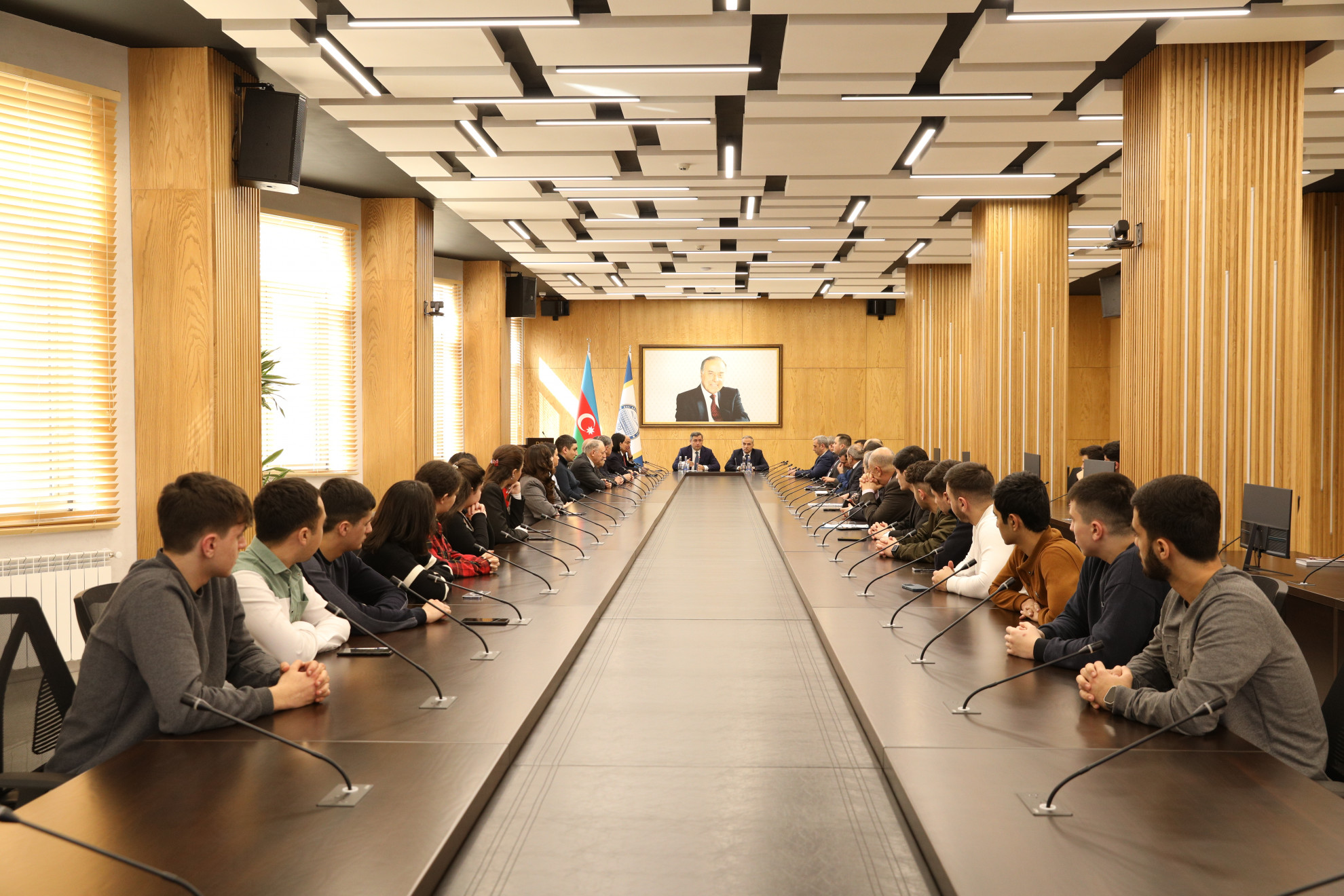An event titled “Prospects for Peace and Cooperation in the South Caucasus,” co-organized by the Center of Analysis of International Relations (AIR Center) and the Faculty of International Relations and Economics of Baku State University, was held.
Commenting on the regional processes, AIR Center Chairman Farid Shafiyev said that, in contrast with the widely spread beliefs, Azerbaijan has no intention of being isolated from the West. He noted that President Ilham’s participation in the Munich Security Conference and the important meetings held within the event testify to that.
“Armenia is the only country in the South Caucasus that has isolated itself," he underscored.
Shafiyev added that Azerbaijan promotes dialogue in a bilateral format. At the same time, Baku has proposed the creation of a cooperation platform between the three countries of the South Caucasus.
“Although Georgia has agreed to this proposal, Armenia, unfortunately, does not support it.”
The AIR Center Chairman drew attention to the Constitution and other legislative acts of the Armenian Republic that contain overt territorial claims against the Republic of Azerbaijan. He emphasized the necessity of bringing the issue of compensation to the international agenda.
“For 30 years, our lands have been under the Armenian occupation. Armenia, which pursued an aggressive policy against Azerbaijan, tries to portray itself as the oppressed side. Azerbaijan is committed to the peace agenda. But Armenia isolates itself from this process.”
Calling the landmine problem a major threat, F. Shafiyev said that Azerbaijan has not been provided with major aid in this direction. While the existence of this serious threat is recognized at the international level, and certain aid is provided by some funds. However, most of the work related to mine clearance operations is organized by Azerbaijan itself.
Highlighting the importance of the bilateral format in the peace process, Farid Shafiyev drew attention to Armenia’s reluctance to engage in peace talks in this format.
“Interestingly, Armenia agrees to attend the meetings on border delimitation commissions in a bilateral format. However, it is looking for a guarantor in the negotiations on a peace treaty. Armenia must abandon this mentality.”
Addressing the event, Musa Gasimly, the member of the Azerbaijani parliament and Doctor of Historical Sciences, stressed the need for a careful analysis of the regional and international conditions in order to achieve sustainable peace in the South Caucasus. According to him, Armenia is waiting for a change in the international political landscape and, therefore, delaying the peace process.
“Armenia is waiting for the results of the Russia-Ukraine war. They believe that as a result of the war, the West will win, and after that, they will achieve what they want in the region. Loud statements are made about the importance of sustainable peace in the region, but we do not see the manifestations on the ground,” M. Gasimli noted.
Associate professor at the “Diplomacy and modern integration processes” department of the Faculty of International Relations and Economics of Baku State University, PhD in political science, noted that the victory achieved after the 44-day war confirmed the correctness of the military-political concept of President Ilham Aliyev.
According to her, Azerbaijan has put forward unique military tactics.
“The Shusha operation and non-contact warfare conducted by Azerbaijan are already being instructed in military schools. Today, new realities have emerged in the South Caucasus, and the world must accept these realities. The world community saw no military solutions to the former conflict because they were interested in maintaining the status quo. This served the interests of Armenia and its patrons. Azerbaijan could not agree to this under any circumstances,” she concluded.
Stressing Azerbaijan's growing geopolitical importance, AIR Center Head of Department Javid Valiyev said that Azerbaijan’s relations with the Organization of Turkic States are gaining new momentum. According to him, the OTS’s elevation will be of special importance in the future. He also drew attention to the necessity of increasing cooperation in the military-defense field within the framework of the organization.















